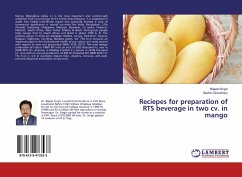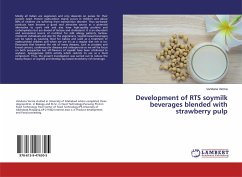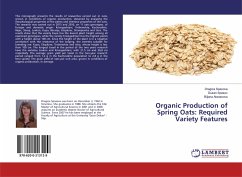
Mango Pulp- Effect of Variety and Storage Temperature
Physico-chemical characters, Sensory Parameters and Microbial Load
Versandkostenfrei!
Versandfertig in 6-10 Tagen
45,99 €
inkl. MwSt.

PAYBACK Punkte
23 °P sammeln!
The mango constitutes more than 21 percent of the fruit production in the country and stands first in the world in terms of production followed by China. In India, more than 600 varieties of mango are available and about 20 of them are in commercial production. The most popular varieties for processing are Alphanso and Kesar. About 6 lakh tonnes of mango is processed for pulp production. Chittoor district in Andhra Pradesh and Krishnagiri in Tamilnadu are two large clusters with over 100 units involved in mango pulp production in the country. Pulp packaging is mainly done in three types: asept...
The mango constitutes more than 21 percent of the fruit production in the country and stands first in the world in terms of production followed by China. In India, more than 600 varieties of mango are available and about 20 of them are in commercial production. The most popular varieties for processing are Alphanso and Kesar. About 6 lakh tonnes of mango is processed for pulp production. Chittoor district in Andhra Pradesh and Krishnagiri in Tamilnadu are two large clusters with over 100 units involved in mango pulp production in the country. Pulp packaging is mainly done in three types: aseptic (50 %), canning (47 %) and frozen (3 %). The other countries which produce mango pulp are Mexico, Philippines, Columbia, Brazil, Egypt and Pakistan. Mango pulps have a good demand throughout the year. Traditionally, our country has been well-known for offering fruit pulp. Fruit pulp has an important place, as they are rich in essential minerals, vitamins and other nutritive constituents. They are also liked and appreciated by the people of all ages and acceptable on all occasions. Besides, they are delicious and have universal appeal unlike other pulp. The nutritive












